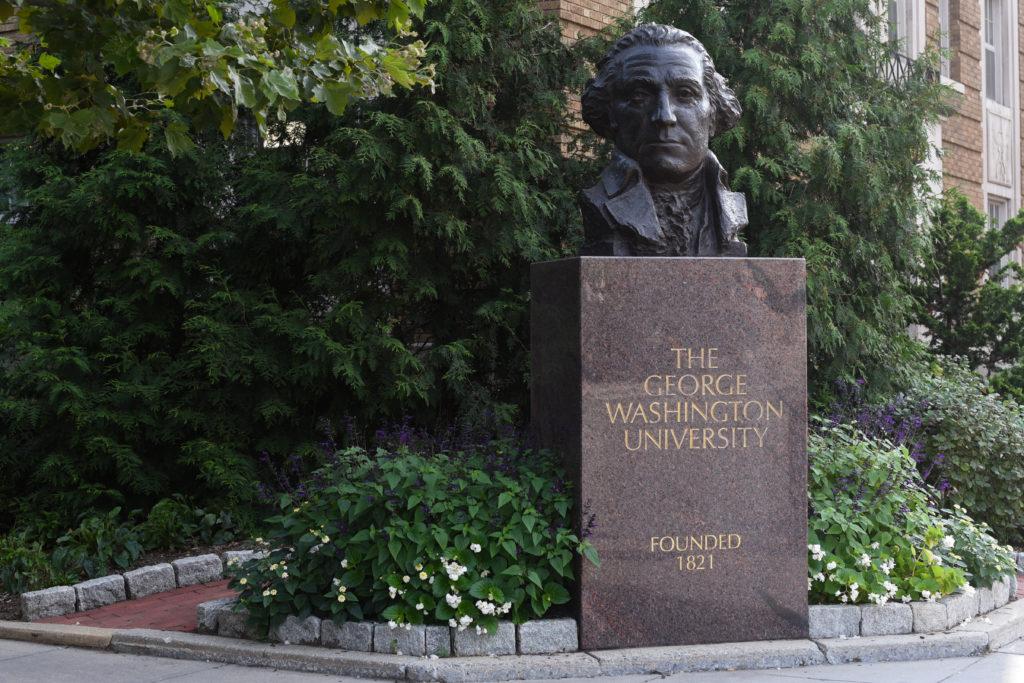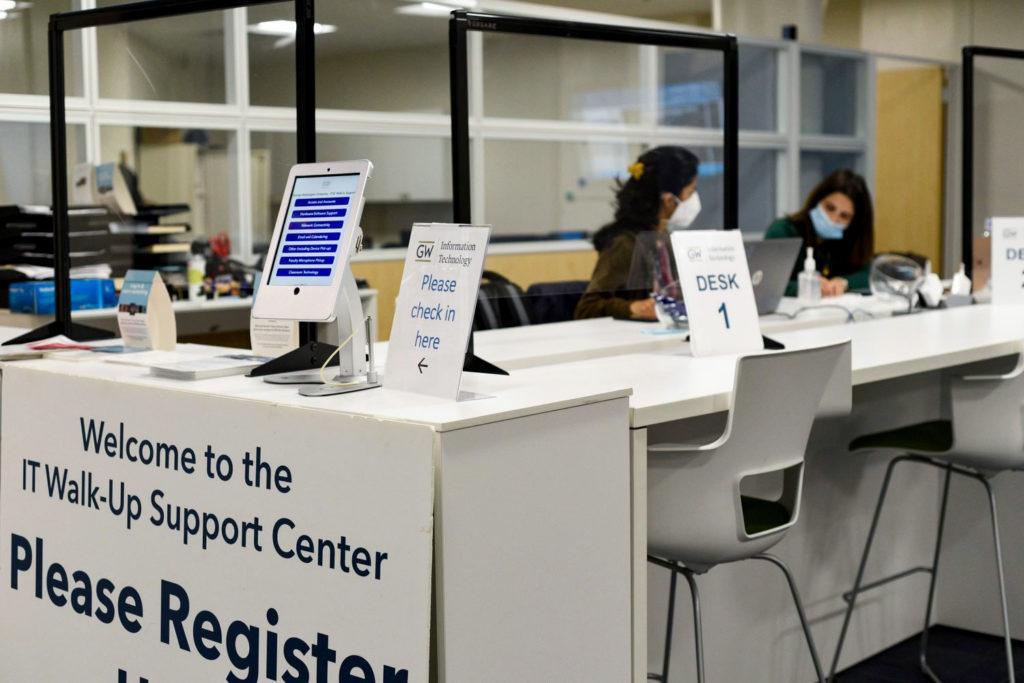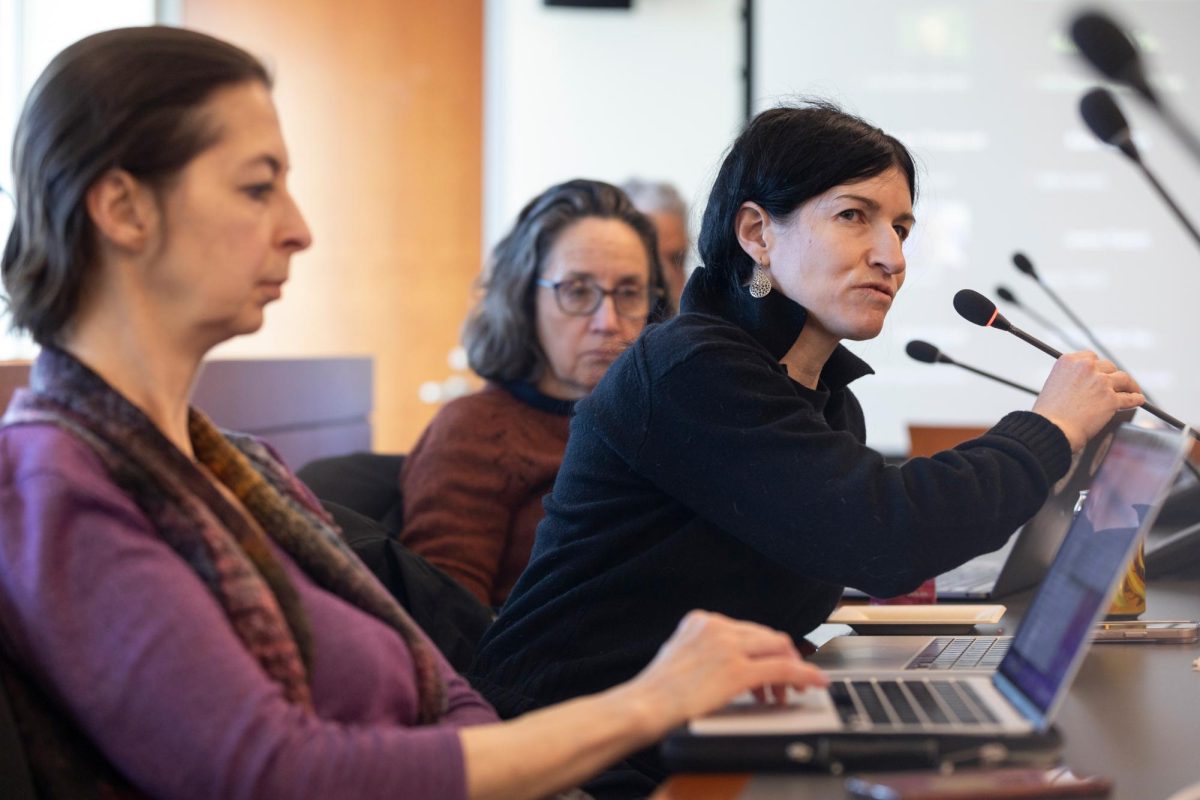Officials are looking for the leader of another large research institution, a major government or business leader to serve as GW’s next permanent University president, according to the presidential profile that they released Tuesday.
The profile, which outlines the traits and qualifications the presidential search committee is looking for in potential candidates, also states the next president should be able to “build upon” the trust officials have fostered with community members since former University President Thomas LeBlanc left GW about nine months ago. Officials have sought to repair relations with community members since LeBlanc – whose presidency was marred with accusations of violating the tenants of shared governance and of making racially-charged comments – left in December.
The profile comes after the committee hosted a series of community forums about the search last month with community members who called for an increased commitment to diversity and sustainability and wider community involvement in major decisions from GW’s next president.
“GW seeks a visionary president who is inspirational and who brings a unique commitment to the success of the entirety of the university; they will need to strategically deploy resources to drive the university’s aspiration for ever-increasing academic excellence and research,” the profile states.
In GW’s last presidential search, officials released their presidential profile about five months into the search process and less than three months before they announced their final pick. Experts in higher education presidential searches said the presidential search committee could be ready to announce their final candidate by the Board’s February meeting, based on its current timeline.
The profile states that the presidential search committee is “especially” looking for candidates who have served in top government or public service roles and who could promote GW’s image of serving as “policy influencers” in the District.
The profile states GW’s long-term goal is to become the only D.C. member of the Association of American Universities, an elite group of 63 American and Canadian research universities that account for much of the American research grants, whose members employ almost 40 percent of the world’s Nobel Prize winners and collectively lobby the federal government on higher education policy. GW could only become a member of the AAU if three-quarters of the organization’s current members agreed to invite it, according to the Association of American Universities.
No other college or university in the District is currently a member of the AAU, but seven of GW’s 12 peer institutions are currently members, including the University of Pittsburgh, University of Southern California, University of Rochester, Boston, New York, Tufts and Tulane universities.
“As a comprehensive, research university, GW has the special advantage of location in the nation’s capital and a storied history of influencing public policy,” the profile states. “Its students and faculty regularly take tremendous advantage of their location.”
The profile states that officials are also looking for leaders who have worked at one of the University’s peer schools, especially one that has an academic-medical enterprise like GW’s, which includes the School of Medicine and Health Sciences, the Medical Faculty Associates and the GW Hospital.
The Medical Faculty Associates, a group of faculty from the SMHS who provide medical services with the MFA and the GW Hospital, has come into financial difficulty in recent years, with its net assets declining by over 200 percent over a five-year period. The MFA currently owes lenders about $200 million.
The profile also states officials “expect” the new University president to be able to lift GW and its colleges up in the U.S. News and World Report’s annual college ranking list to be included in the top 50 schools on the list. GW rose one spot in the U.S. News ranking to No. 62, while Forbes bumped GW 10 spots to No. 61 in its list last month.
“GW seeks a leader who inspires trust, conveys trust, who listens actively to make transparent decisions informed by data, who has superb academic judgment and who feels rewarded by enabling every student, staff and faculty member to reach their full potential, individually and collectively,” the profile states.
The presidential search committee wants the next University president to double the amount of outside research funding within the next five years. Last year, the federal government gave GW almost $160 million for research funding, according to the profile.
The Board of Trustees is also looking for candidates who they believe will engage with the student body on pertinent political issues to promote the political profile of the University. The Board also wants the next University president to build on new shared governance principles, which call for increased cooperation between faculty and trustees, according to the profile.
“GW’s next president will be expected to have a strong record of commitment to principles of diversity, equity and inclusion and effective experience in creating an environment that is welcoming and nurturing for all,” the profile states.








